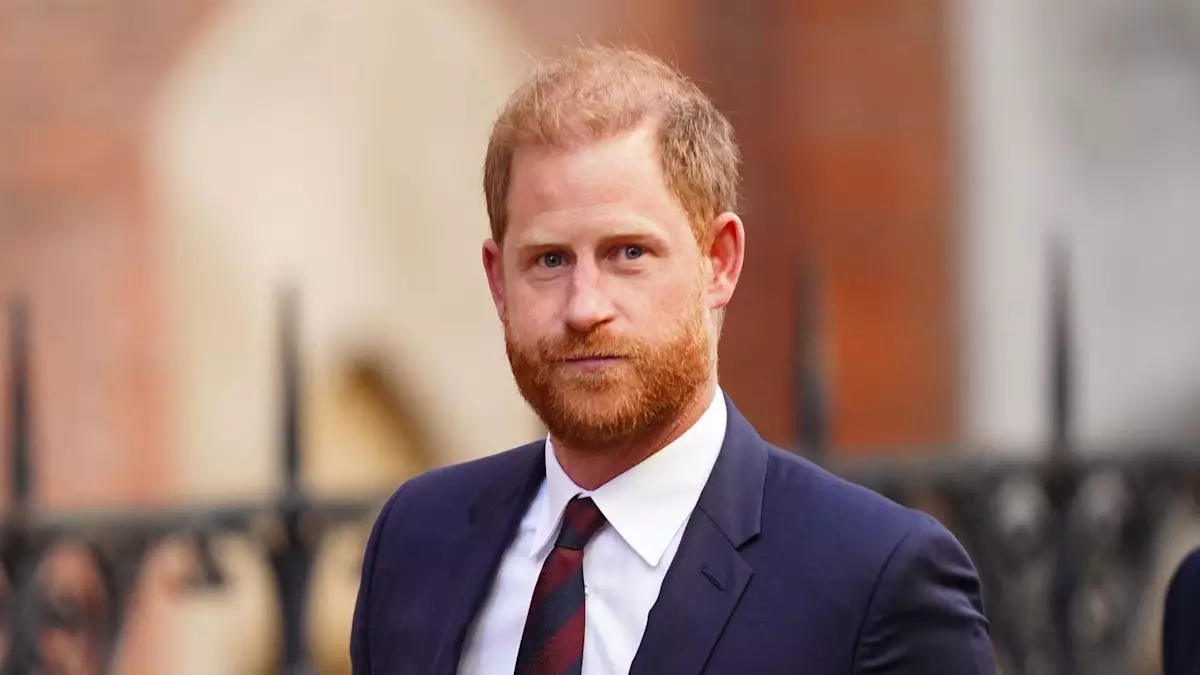Prince Harry’s ongoing legal struggle over his police protection is not merely a concern for personal safety; it reverberates through the broader discussions of royal duty, privilege, and the responsibilities that come with public life. As he shared his fears about the lack of adequate security after stepping back from royal duties, the discourse veers towards a critical examination of how the monarchy adapts to the changing dynamics of modern society. Harry’s candid admission of being “exhausted” by the legal conflict speaks volumes about the personal toll this battle is taking on him and his family. It raises questions about the emotional burden entwined with royal life, especially when one opts to tread a different path away from tradition.
Harry’s assertions that his “worst fears” regarding his security arrangements have been confirmed challenge the notion of royal invulnerability. The idea that a member of the British royal family could feel apprehensive about their safety is jarring and amplifies the narrative that even those cloaked in privilege are not exempt from vulnerability. The royal experience, once perceived as a gilded life insulated from the world’s harsh realities, is laid bare as a complex tapestry woven with both fear and responsibility.
Legal Warfare and Public Perception
The legal proceedings, under the scrutinizing gaze of public opinion, reveal an institution grappling with its image amid a media storm. The essence of Harry’s legal appeal lies in his contest against the Home Office’s decision to limit his police protection, a decision he argues is rooted in an attempt to control his narrative as he and Meghan seek autonomy. The Home Office’s strong opposition to his appeal indicates a system that prioritizes legal interpretations over personal security, which raises an ethical dilemma: should the safety of an individual, regardless of their royal status, be a negotiable commodity?
Critics may argue that Harry is playing the victim in what appears to be an ongoing feud with the royal family, but a deeper analysis reveals that his plight touches on fundamental human rights. Shaheed Fatima KC, representing Harry, eloquently emphasized that the case encompasses a human dimension that transcends legal jargon. This highlights the clash between institutional decisions and the lived experiences of individuals affected by those decisions.
The Crux of the Debate: Security or Control?
As Harry navigates through the legal labyrinth, questions linger about the underlying motives of the decisions made by the Executive Committee for the Protection of Royalty and Public Figures. This body’s choice to provide only “bespoke” security raises eyebrows, particularly its stipulation requiring 30 days’ notice prior to any visit. This structure not only feels impractical but also suggests an effort to exert control over the Duke’s life choices—an ironic contradiction for someone seeking independence from traditional royal expectations.
The timing of Ravec’s decision in early 2020, coinciding with Harry and Meghan’s departure from their royal roles, further fuels speculation that the determination was less about security logistics and more about curating a narrative around their exit. The Palace’s strong denial of any such agenda is at odds with Harry’s portrayal of the events, creating a chasm between the public relations crafted by the monarchy and the reality experienced by the Sussexes.
The Road Ahead: Legal Outcomes and Their Implications
As the case heads toward a decision from the Court of Appeal, the implications extend far beyond Prince Harry and his immediate family. This is a pivotal moment for how we perceive the protective measures afforded to public figures and the necessary balance between privacy and safety. The legal arguments presented so far suggest that the royal family, albeit steeped in tradition, must adapt to contemporary expectations around security and transparency.
If the court favors Harry, it could set a new precedent not only for royal security protocols but also for how public figures interact with the systems that govern them. Conversely, a ruling against him may reinforce the status quo, further entrenching the divide between the monarchy’s public façade and the private struggles of those within its ranks.
In the grand narrative of modern monarchy, Prince Harry’s battle for appropriate security is a microcosm of the larger discourse on power, privilege, and the human experience—an endeavor that brings both personal stakes and the potential for institutional transformation.

Leave a Reply